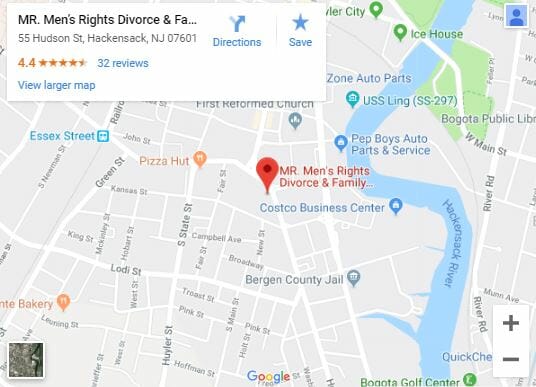
Please Note: Our practice focuses on cases that occur in New Jersey.
If you’re in a custody dispute with your child’s mother, you may wonder, do mothers have more rights than fathers? Legally, the answer to this question is “no.” Mother’s don’t have more rights than fathers. Under New Jersey’s child custody law, both parents start out on the same footing.
The idea of favoritism towards women in custody decisions may be an echo of times past when, traditionally, mothers stayed home to care for children while fathers were wage earners. Today many women work and more and more men are primary caregivers to their kids. Still, sometimes historical norms can be hard to get past and it can leave fathers feeling like they aren’t getting equal consideration.
But the law is on your side, so it’s important to get legal counsel if you believe your rights as a parent are being violated.
The Rights of Mothers and Fathers Are Equal under New Jersey Law
New Jersey law NJSA 9:2-4 states, “In any proceeding involving the custody of a minor child, the rights of both parents shall be equal…”
Under the law, the key issue in custody decisions isn’t whether a parent is a mother or father, it’s what’s in the child’s best interests. The court considers a variety of factors in determining what custody arrangements are in a child’s best interests (NJSA 9:2-4(c)). Some of the factors include:
- Whether parents can agree and cooperate in matters related to children
- The stability of home environments
- The proximity of parents’ homes to each other
- The amount and quality of time each parent spent with the child prior to the breakup of the marriage
- Whether domestic violence was an issue
- Parents’ employment responsibilities
- Children’s educational concerns
- The child’s preferences if they are old enough and mature enough to decide
The Presumption is Children Benefit with Both Parents in Their Lives
The courts presume children will benefit when both parents are part of their lives. According to the law, it’s the policy of the state “to assure minor children of frequent and continuing contact with both parents after the parents have separated or dissolved their marriage.”
Types of custody the courts may award toward the goal of frequent and continuing contact with both parents include:
- Legal custody, which allows parents to make major decisions for the child, such as about their medical care, education and other areas.
- Residential or physical custody, which refers to how much time a child lives with a parent and the parent’s ability to make practical, daily decisions about their life.
Both legal and physical custody can be shared in various ways. However, if a parent doesn’t want to be part of a child’s life or has serious issues hindering their ability to care for a child, that parent may not have either type of custody. Sole legal and physical custody may be awarded to one parent, with possible limited and potentially supervised visitation for the other parent.
Unmarried Fathers Must Prove Paternity to Have Parental Rights
A caveat to the question of whether mothers have more rights than fathers involves unmarried parents. When parents are unmarried, paternity must first be established. How do you prove paternity?
You can establish paternity when your child is born by being on the birth certificate. Being on the birth certificate is a presumptive right of parentage. As such, you’ll have the same rights and responsibilities (and financial obligations) as a father as you would have had if you were married to the mother when the child was born. The certificate can also be signed at a later time if both parents agree to paternity.
However, if either of you dispute you’re the father but you believe you are, you can file a paternity case with the court. The court may order DNA testing to determine paternity. If you’re successful in establishing paternity, you will have say when it comes to custody decisions. The flip side of this is true too. If a mother is claiming you are the father to try to get child support from you, but you believe you are not the father, then you will want to contest paternity. Don’t wait to do this, however. Until and unless it is proven that you are not the father, you may be on the hook for child support, which you will not be able to be reimbursed for whatever child support you did pay up to the point until paternity is clear.
Fatherhood is Changing but Bias is Still an Issue
Statistics from the Pew Research Center shows how fatherhood has changed over the past several years in the country:
- The share of fathers who cared for children full time increased from 4% in 1989 to 7% in 2016.
- Fathers were 17% of all stay-at-home parents in 2016, compared to 10% in 1989.
- Fathers stated they spent eight hours a week on child care in 2016. Women estimated they spent 14 hours a week on childcare. These statistics show how the caregiving gap is closing. In 1965, men spent about two hours a week on childcare.
Additionally, the percentage of mothers and fathers who stated parenting is extremely important to their identity is nearly identical: 57% of fathers and 58% of mothers. And interestingly, more dads than moms said that parenting is rewarding and enjoyable all of the time.
Despite these changes, the surveys still found a bias against men in opinions on who takes better care of an infant and whether it’s essential a child bond with their father.
- 53% stated, breastfeeding aside, mothers do a better job than fathers caring for an infant.
- 71% reported it’s equally important for infants to bond with both parents, but more than a quarter (27%) said it’s more vital for them to connect with their mothers.
As you can see, in spite of changing parenting norms, fathers often find themselves subject to bias when it comes to parenting. While the law is clear that moms don’t have more rights than dads, it’s possible that bias in society may still affect custody decisions.
Contact Our Skilled Bergen County Child Custody Attorneys for Help
If you believe your rights as a father aren’t being given equal consideration, our Hackensack attorneys at Men’s & Fathers’ Rights Divorce Lawyers by Schultz & Associates, LLC, are here for you. We will advocate for you during the custody process to ensure that your rights are protected. We want to ensure you’re treated fairly and your child’s best interests are met. And if a custody order is already in place that you believe didn’t fairly take your rights into account, we can advise you about a possible modification to the order.
You can schedule a case evaluation with an experienced attorney from our firm by calling us today at (201) 880-9770. You have equal rights as a parent. We will stand up for them.

